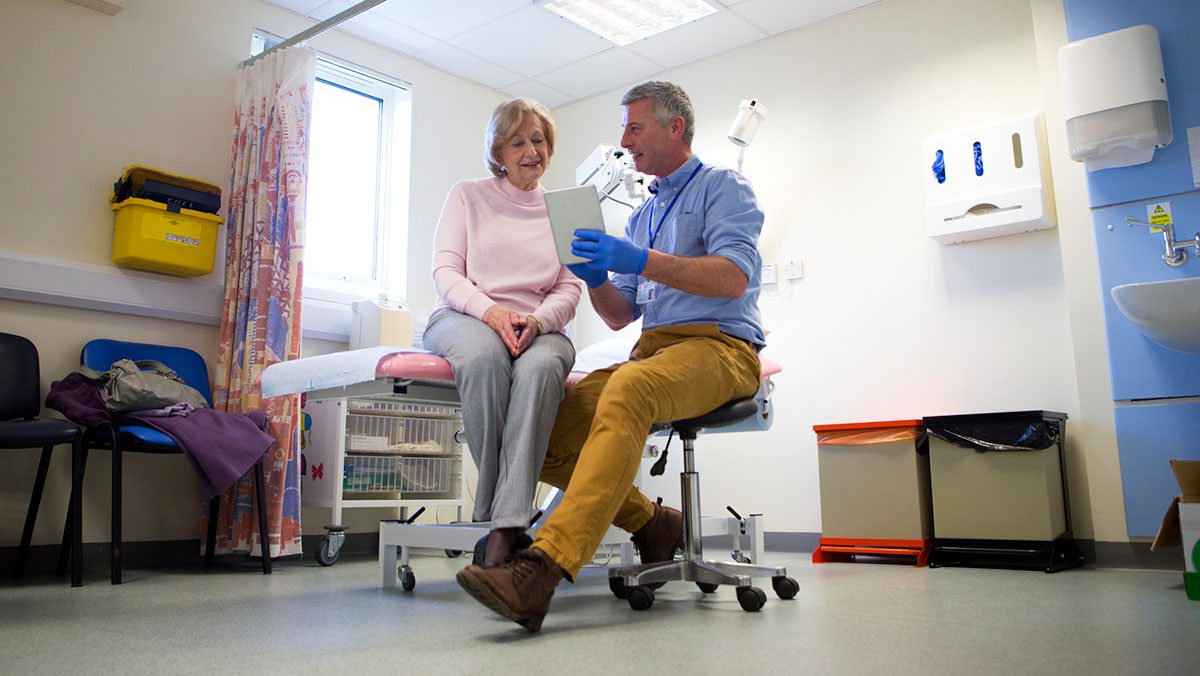One of the largest acute Trusts in the UK, has formed a 10-year strategic partnership with Nervecentre Software to deliver a Next Generation Electronic Patient Record (EPR) that harnesses mobile technology to achieve a best in class user experience for clinicians, and power its strategy to become a HIMSS 7 certified digital hospital.
The partnership will see Leicester’s Hospitals use Nervecentre’s mobile-first EPR platform as the foundation for a class-leading IT service that connects clinicians, patients and system partners, to create joint value for the whole health economy.
Andy Carruthers, Acting Chief Information Officer at Leicester’s Hospitals said: “The move is a key component of our digital strategy, which by 2022 aims to consolidate many of our existing systems into an EPR that supports patient safety, patient flow initiatives and reduces our reliance on paper through a robust single patient record. The consolidated system will also give us better connectivity – and real-time visibility – with our partners in primary, community, mental health and social care. This is critical to our plans to improve record sharing across the region.”
The agreement cements a long-standing relationship between Leicester’s Hospitals and Nervecentre that has seen the Trust achieve widespread clinical adoption of a range of integrated mobile tools. The Trust already relies on Nervecentre solutions to support clinical priorities such as electronic observations, workflow, sepsis screening, nursing assessments and patient flow, as well as supporting their Emergency Department. The new partnership will enable Leicester’s Hospitals to further enhance its Nervecentre capabilities with the addition of mobile-first PAS (Patient Administration System), diagnostic requesting and e-Prescribing. The trust also plans to develop the system to allow patients to interact with its digital services and contribute to their patient records.
Andy added: “This is a natural progression of our relationship with Nervecentre and marks a joint commitment to futureproof Leicester’s Hospitals so it can deliver sustainable services fit for the 21st century. Our digital strategy is focused on how we can best use technology to provide better, safer and more efficient care for our patients – and maximise all the advantages of paperless working. Nervecentre has already played a significant role in the progress we have made against our clinical quality objectives in recent years – and now we want to go further. The partnership will see us build our digital journey around the expanded use of the Nervecentre system, working together to develop a truly innovative EPR. It signals a fundamental shift in our IT provision and is a key enabler for the organisation’s quality strategy. As we strive for digital maturity, the goal is to simplify our IT approach by building around a platform that’s mobile, modern and – crucially – well adopted by our staff. That’s why we chose Nervecentre.”
Paul Volkaerts, Founder and CEO, Nervecentre Software, said: “Leicester’s Hospitals is already a strong user of Nervecentre’s Patient Safety feature set, and it is a tribute to the intuitive design of our mobile-first solutions that their clinicians wanted to build upon this mobile user experience for their EPR strategy. Leicester will be the first Trust to follow our “PAS Last” deployment strategy – focusing upon the key patient safety objectives of an EPR before focusing upon the administrative benefits – and this will form a blueprint for delivering HIMSS 7 compliance using a strategy that delivers value faster and at a lower total cost than traditional “big bang” strategies. We are proud to be selected to support Leicester’s Hospitals in their on-going digital journey. We’re looking forward to working closely with them to deliver it.”
Andy ended by saying: “Creating a digital strategy for an ever-evolving function within a highly complex and changeable acute hospital environment is never easy. It’s important to get the foundations right and build flexible platforms that can adapt and respond as an organisation evolves. Our partnership with Nervecentre will play a pivotal part not only in setting those foundations but also in building on them to develop the world-class services our patients deserve. The opportunities for innovation are really exciting.”





